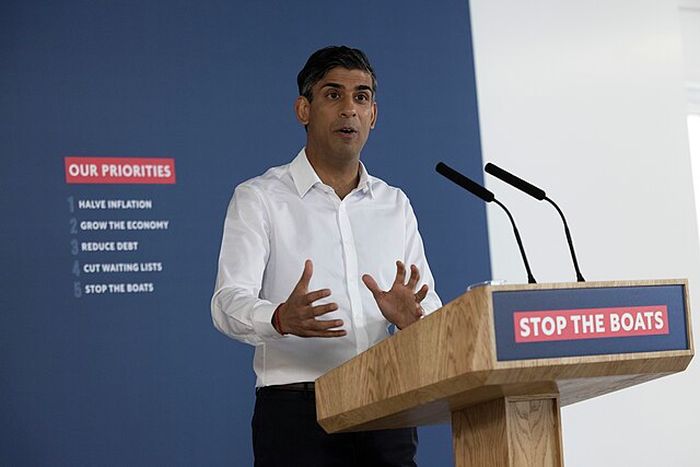Cambridge students prefer Labour, but aren’t ‘represented’ by any party, poll reveals
While Labour is most popular among students at the University, more than 60% don’t feel they belong to any political party

Over 40% of Cambridge students plan to vote Labour at tomorrow’s general election, though more than half do not feel represented by any political party, Varsity can reveal.
In a self-selecting survey completed by over 450 Cambridge students, 42.5% of respondents said that they will be voting for Keir Starmer’s party tomorrow. This makes Labour slightly more popular among Cambridge students than amid the general population, with YouGov’s latest MRP poll revealing that 39% of the public intend to opt for the party.
However, Labour is less popular among Cambridge students than young voters as a whole, as 47% of 18-24 year-olds will vote for the party tomorrow, according to YouGov.
The Liberal Democrats and the Greens also prove very popular among Cambridge students. Carla Denyer and Adrian Ramsay’s party takes second place to Labour, with 23.5% of those polled intending to vote for the Green Party. The Lib Dems come in a close third, as 23% of respondents told Varsity they will vote for Ed Davey’s party tomorrow.
The Conservatives sit in a distant fourth place with 5.7% of the Cambridge vote, followed by independents (2%) and Reform UK (1.3%).
Despite students’ strong support for Labour, 61.2% told Varsity that they do not feel represented by any political party. A number of respondents said that they are voting tactically for Starmer’s party.
When asked which political issues matter most for them, voting the Tories out of government appeared among students’ biggest priorities for the election.
Participants identifying as female revealed left-leaning tendencies compared to their male counterparts. Of the respondents who intend to vote Conservative, over 76% were male. Of those planning to vote Reform, over 83% were male.
Meanwhile, over half of those planning to choose Labour tomorrow identified themselves as female.
57.9% of non-binary students plan to vote for the Green party, with one commenting: “Labour’s stance on trans people has made me firmly move away from voting for them and towards the greens and lib dems.”
While the majority of students will vote in their home constituencies tomorrow, over 17% will vote in Cambridge, whether in person or by proxy or post.
The Green party (26.2%) was the most popular party among these voters, with Reform UK (16.7%) and the Conservatives (15.4%) coming in second and third respectively. Labour (13.9%) was among the least popular options, alongside independents (11.1%).
Labour is 21% less popular among these voters in comparison to those planning to vote at home.
Daniel Zeichner has been the Labour MP for Cambridge since 2015, and today’s YouGov poll predicted that he will hold the seat, taking 48 per cent of the vote.
The colleges with the highest proportion of Conservatives voters were Wolfson, Emmanuel, Gonville & Caius, and Trinity. In contrast, the colleges with the highest percentage of Labour voters were Clare Hall, Darwin, Pembroke, and Christ’s. At all four of these colleges, over half of respondents selected Labour as their party of choice.
Climate change is the political issue of most importance to Cambridge students, according to Varsity’s results, and was mentioned by more than fifty readers.
The University has faced a steady campaign of climate activism in recent years, which began with a call for colleges to divest from fossil fuels, and has continued more recently following the publication of the Topping report, which found that Cambridge should stop accepting research funding from the industry.
Showing support to Palestine in the Israel-Gaza conflict is another important issue for respondents, according to the poll. Some students specified that they want the new government to be formed by a party pledging to call for a ceasefire and officially recognise the state of Palestine.
The Cambridge for Palestine (C4P) encampment has been in place for more than a month, with student representatives in negotiations with the University over their demands for Cambridge to cut financial ties with Israel.
Other important political issues for Cambridge students include funding the NHS, protecting LGBTQ+ rights, and securing economic growth in the face of the cost of living crisis.
 News / Caius students oppose exhibition dedicated to eugenics professor’s book5 June 2025
News / Caius students oppose exhibition dedicated to eugenics professor’s book5 June 2025 News / Trinity stalls on divestment review despite mounting pressure6 June 2025
News / Trinity stalls on divestment review despite mounting pressure6 June 2025 News / Cantabs reconsider US postgrad plans amid Trump upheaval7 June 2025
News / Cantabs reconsider US postgrad plans amid Trump upheaval7 June 2025 Sport / Exam Blues: The Player’s View6 June 2025
Sport / Exam Blues: The Player’s View6 June 2025 Features / Friends, rivals, coursemates: on competition and camaraderie in Cambridge3 June 2025
Features / Friends, rivals, coursemates: on competition and camaraderie in Cambridge3 June 2025






